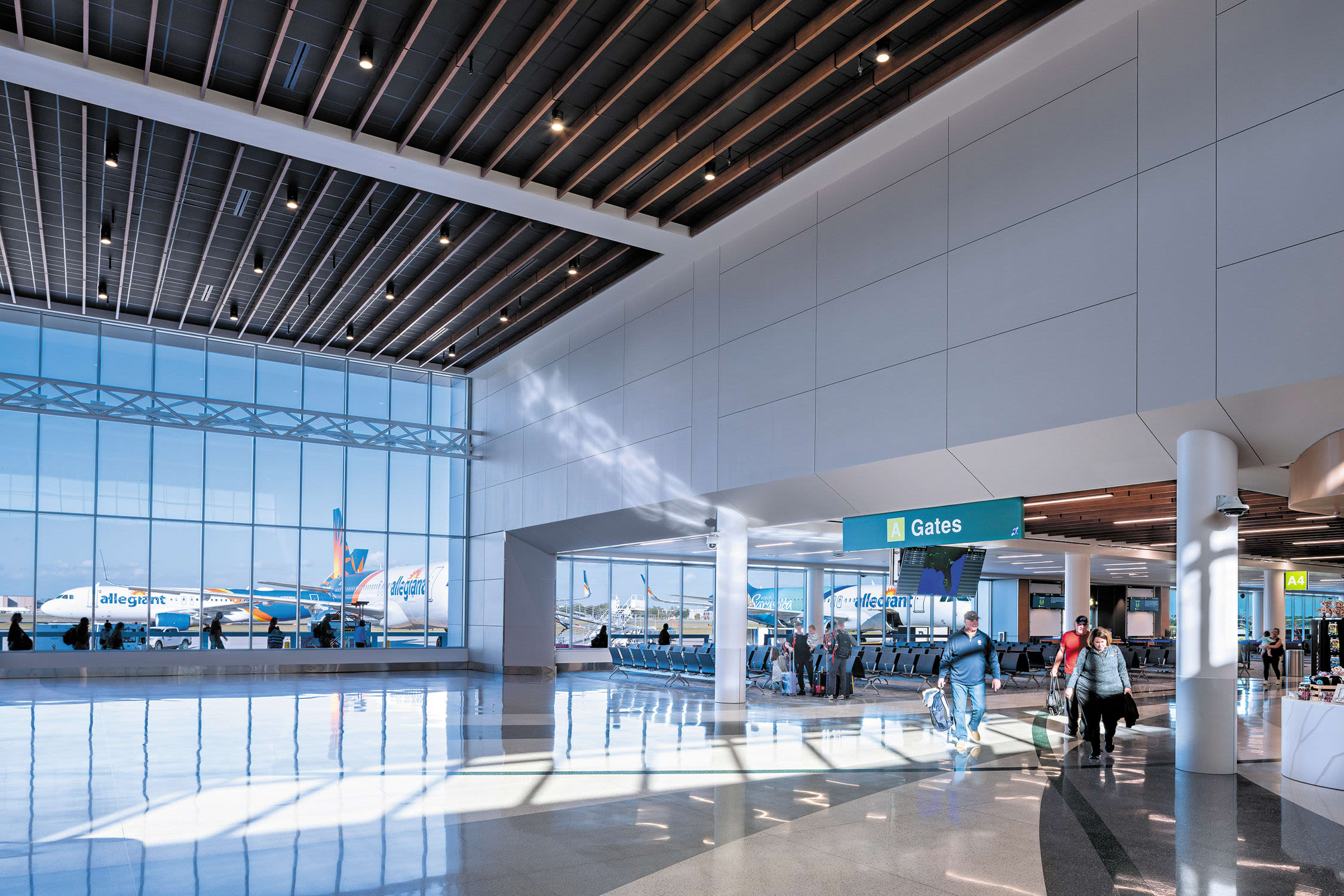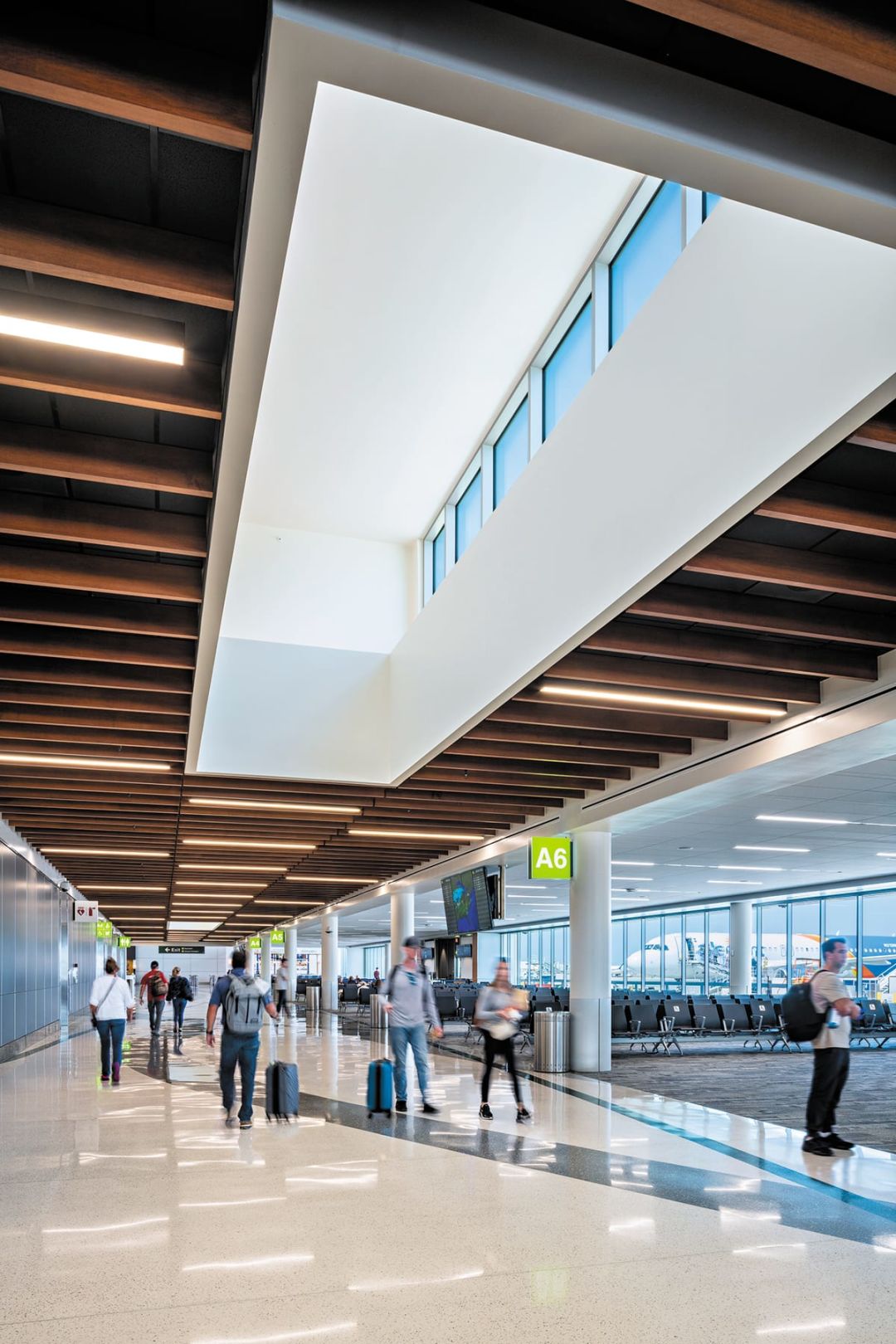
SRQ's Outgoing President and CEO Rick Piccolo Reflects on 30 Years of Growth
Editor's note: On Tuesday, June 24, Sarasota Bradenton International Airport announced that Paul Hoback Jr. will succeed Rick Piccolo as SRQ's president and CEO. Hoback is currently the executive vice president and chief development officer for Allegheny County Airport Authority, which oversees Pittsburgh International Airport.
Rick Piccolo’s career in aviation started more than five decades ago. Now, after 30 years of leading operations at Sarasota Bradenton International Airport, he’s stepping down. We caught up with him to learn about leadership, changes in the aviation industry and what comes next.

Image: Courtesy Photo
How did you get involved in aviation?
“Right out of high school, in 1970, I took a job as a janitor at the Buffalo, New York, airport. About a year later, I was promoted to airfield maintenance, but then I got drafted into the Army. When I came back, I resumed my job, got married and started a family. My wife, who was working at the University of Buffalo, pushed me to enroll at the university and filled out the whole application for me. She just told me, ‘Sign here.’ I used the G.I. Bill for a bachelor’s degree in business administration and worked my way up.
“I never set out to have a career in aviation—I just needed a job. But having worked my way through different roles, I gained a deep respect for every position. As a union representative, I also understood the importance of taking care of employees. If you support your people, they’ll take care of you. My leadership philosophy has always been to provide good benefits, fair pay and let people do their jobs once they’ve proven they can.”
SRQ has seen remarkable growth. What strategies helped you achieve that?
“It’s been a team effort. We focused on maintaining a boutique airport feel—clean, convenient and customer-friendly. Competition was tough, with airports in St. Pete, Tampa, Punta Gorda, Fort Myers and Orlando. In the early years, we were extremely fiscally conservative. When I got there, the airport was $115 million in debt. We retired all our debt in 2014, which helped us manage the explosive growth in recent years.
“Unlike most government entities, we don’t have taxing power. We rely on revenue from concessions, rental cars and grants, so we have to run it like a business. We pay our own salaries. A 2022 Florida Department of Transportation study found that SRQ supports 23,000 jobs and generates a $3.2 billion economic impact—all without taxpayer funding.”
What qualities should SRQ’s next leader possess?
“They should maintain the boutique atmosphere and prioritize employees and customer service. We generate about $10 million more in revenue annually than we did a few years ago, and we share some of that with employees through profit sharing. Listening to them makes us more efficient. We give employees a say and maintain a small-town feel as the airport continues to grow.
“[The next CEO] also needs to ensure passengers feel valued. If someone looks lost, stop and help them. That kind of customer care makes people want to return.”

Image: Courtesy Photo
What are the biggest opportunities and challenges facing SRQ in the coming years?
“Since we have no debt, future projects will require taking on some. We’re looking at terminal expansions, a parking garage, attracting more nonstop flights to the West Coast and international charter services. We also recently announced a deal with Pilatus Aircraft to build and maintain jets here, creating 500 new jobs.
“When I first got here, the airport’s non-aviation revenue [i.e., money made through product sales, advertising and leasing space at the airport] was barely $200,000 a year. Today, we’re looking at $3.5 million—and that number is still climbing. With Elixir Aircraft and Pilatus Aircraft setting up shop, plus Sheltair and other operators coming in, we expect that growth to continue. [Editor’s note: Elixir and Pilatus both manufacture light aircraft and provide maintenance and other services, while Sheltair offers fueling services, airplane storage and more.]
“Back then, there wasn’t a single T-hangar [to store] private aircraft. Now, we have 163. The main runway used to be just 7,000 feet. Today, it’s 9,500 feet and handles all commercial airliners. We’ve also added thousands of feet of taxiway on the north and east sides.”
What’s the strangest or most unexpected situation you ever had to handle at SRQ?
“One night in 2019, at 3 a.m., a truck crashed through our perimeter fence and into the baggage claim wall, taking out a section of cinderblock. The driver was under the influence. There’s even a YouTube video of it. By 7 a.m., we had cleaned everything up, and no one arriving that morning knew it had happened. I think that one tops it.”
What’s a common misconception people have about running an airport?
“People assume we control everything, including flight paths, but once a plane is an inch off the ground, it’s the Federal Aviation Administration’s responsibility.”
What’s one industry shift you wish had happened sooner?
“Security protocols. Before 9/11, you could walk straight onto a plane without dealing with checkpoints. It’s unfortunate that such a major change had to happen the way it did. If something could have not happened, I would
pick that.”
You’ve worked with airlines, government agencies and the public. Who was the toughest to deal with?
“The federal government, hands down. Bureaucracy and regulations make things incredibly slow.”

Image: Courtesy Photo
What would you like your legacy to be?
“I hope I left it better than I found it—but that’s for others to decide.”
If you could travel in time back to your first day as CEO, what advice would you give yourself?
“Patience is key. Slow and steady wins the race.”
You’ve spent your career ensuring others reach their destinations. Now that you’re retiring, what’s your dream destination?
“I’ve been to 48 countries, and I love Italy, but honestly, travel isn’t my top priority. I plan to spend more time with my grandkids and improve my golf game right here.
“After stepping down, I’ll stay on as an adviser for six months. I’ve also formed a company in case I want to do some consulting, but I have no plans yet. I’m looking forward to slowing down a bit—after years of dealing with 9/11, hurricanes, the pandemic and even a truck crashing through baggage claim, I think I’ve earned it.”
Rick Piccolo’s last day on the job is Sunday, Aug. 31. The search for SRQ’s new president and CEO remains ongoing.